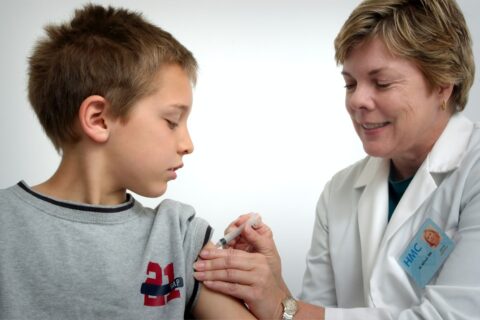Ice, Ice, A-Fib: How Cold Drinks May Spark Atrial Fibrillation
Overview of Atrial Fibrillation and Its Impact
Understanding Atrial Fibrillation
Atrial Fibrillation (AFib) is a condition characterized by an irregular and often rapid heart rate that can lead to decreased blood flow to the body. Affecting about 1-2% of the American population, AFib is frequently associated with underlying health issues such as hypertension and [obesity](https://www.eper.The case study highlights the link between cold food and beverage consumption and the triggering of atrial fibrillation episodes in a patient. These conditions are significant risk factors that exacerbate the likelihood of developing AFib. Individuals suffering from AFib often encounter symptoms like palpitations, shortness of breath, and fatigue. These symptoms can be persistent and may severely impact an individual’s daily activities and overall quality of life.
In addition to its immediate symptoms, AFib poses a heightened risk of severe complications. The condition significantly increases the risk of blood clots, which can lead to strokes and atrial fibrillation if not properly managed. AFib can be classified as paroxysmal, where symptoms sporadically appear and disappear, or persistent, necessitating continuous treatment and lifestyle adjustments to manage the condition effectively. The incidence of AFib notably rises with age, predominantly affecting those over 65 years, underscoring the importance of regular heart health monitoring in older adults. Understanding these dynamics is crucial in the prevention and effective management of AFib. For comprehensive heart health care, visit El Paso Emergency Room to learn more about their state-of-the-art facilities and specialized services.
Cold Drinks as Triggers for Atrial Fibrillation
Recognizing Cold Drink Heart
Cold drinks, often enjoyed for their refreshing qualities, can unexpectedly serve as catalysts for atrial fibrillation (AFib) episodes in susceptible individuals. For instance, a detailed case study involving a physician illustrated how [cold drinks](https://www.medpageoday.com/cardiology/arrhythmias/116072) such as margaritas and ice cream could trigger AFib episodes, highlighting the insidious nature of this seemingly innocuous habit. This phenomenon is not isolated. In a survey of individuals with AFib, a significant 51.5% associated their episodes with the consumption of cold foods or beverages, demonstrating a noteworthy pattern of correlation. By abstaining from cold ingestion, these individuals experienced a remarkable 100% reduction in the occurrence of their AFib episodes, underscoring the potential severity of this trigger.
Furthermore, the list of common cold triggers extends beyond just ice water and smoothies to include other popular cold items like milkshakes and ice cream, which are frequently implicated in activating AFib episodes. Despite these findings, the phenomenon known as “cold drink heart” remains largely underrecognized in the medical community, with only 7.5% of patients surveyed acknowledging cold beverages as potential triggers. This underrecognition indicates a need for greater awareness and education among both patients and healthcare providers, which could lead to more effective management and prevention strategies. Raising awareness of these triggers is crucial for those managing AFib, enabling individuals to make informed decisions about their dietary habits and potentially improve their quality of life.
 Mechanisms Behind Cold Drink Triggers
Mechanisms Behind Cold Drink Triggers
 Esophageal and Vagal Stimulation
Esophageal and Vagal Stimulation
The phenomenon of cold drinks triggering AFib episodes is primarily linked to the stimulation of the esophagus and the vagus nerve, which can consequently alter heart rhythms. This mechanism is often rapid, with symptoms manifesting within seconds to minutes after the ingestion of cold items, particularly following physical exertion. For example, there was a case where a middle-aged man experienced AFib episodes triggered by cold juice. His symptoms were successfully recorded and diagnosed using smart watch technology equipped with electrocardiography capabilities, illustrating the role of modern technology in managing this condition.
Cold beverages, by inducing a vagotonic effect, can exacerbate heart rate irregularities, especially in individuals already predisposed to AFib. The unpredictability of such triggers highlights the importance of meticulous monitoring and adjustments in dietary habits to mitigate the frequency and severity of AFib episodes. It is crucial for those affected to understand the potential impact of cold drinks and to adapt their lifestyle accordingly, which may include moderating the temperature of consumed beverages and avoiding rapid ingestion, thereby potentially reducing the risk of episode occurrence.
 Lifestyle Modifications for Managing AFib
Lifestyle Modifications for Managing AFib
Behavioral and Dietary Adjustments
For individuals grappling with Atrial Fibrillation (AFib), adopting specific behavioral and dietary adjustments can play a crucial role in managing their condition effectively. One of the most impactful strategies involves modifying how cold beverages and foods are consumed. Many patients have discovered that allowing drinks to warm before consumption, avoiding the use of straws, and slowing down the speed of ingestion can significantly reduce the likelihood of triggering an AFib episode. For instance, patients who opted to sip drinks slowly rather than gulping them were able to prevent episodes, highlighting the importance of pacing during consumption.
Additionally, keeping a detailed diary of food and drink consumption has proven beneficial for many in identifying specific triggers. By documenting their dietary habits, patients can pinpoint which items are most likely to induce AFib episodes, allowing for better avoidance and management. Consulting with a dietitian can further enhance this approach by helping to create a personalized nutrition plan tailored to individual needs and sensitivities. Furthermore, the practice of avoiding cold drinks entirely resulted in a substantial reduction or even elimination of AFib episodes for 86.4% of patients, emphasizing the effectiveness of this adjustment. Such proactive measures not only improve heart rhythm stability but also contribute to an overall improved quality of life for those affected by AFib.
Importance of Hydration and Safer Drink Options
Hydration and Heart Health
Maintaining proper hydration is not only vital for general well-being but also plays a crucial role in managing Atrial Fibrillation (AFib) symptoms effectively. It is essential for individuals with AFib to prioritize their hydration status, as dehydration can lead to exacerbated symptoms, potentially increasing the frequency and severity of AFib episodes. Drinking adequate amounts of fluid throughout the day can help stabilize heart rhythm and reduce the likelihood of an episode occurring. To reduce the risk of triggering an AFib episode, patients are advised to choose safer drink options, such as room temperature or warm beverages, rather than cold drinks. Warm herbal teas or beverages infused with electrolytes are excellent alternatives that provide hydration without the risk associated with cold drinks.
Moreover, effective communication with healthcare providers about potential drink triggers is crucial for tailoring management strategies to individual needs. Patients should feel empowered to discuss their experiences with cold drink triggers, allowing healthcare providers to offer more personalized advice and interventions. By holding open dialogues, patients can work with their healthcare team to identify and mitigate specific triggers, potentially leading to a more stable management of their condition. For individuals seeking further guidance or immediate care, visiting facilities such as El Paso Emergency Room, which offers state-of-the-art technology and compassionate care, can be beneficial. This facility not only provides emergency services but also assists patients in navigating their health needs effectively. For more information on how El Paso Emergency Room can support your heart health, visit their website at El Paso Emergency Room.
Proactive Strategies for Controlling Atrial Fibrillation
Taking Control of Heart Health
Taking proactive steps to understand and manage atrial fibrillation (AFib) triggers, such as the consumption of cold drinks, can play a crucial role in enhancing the quality of life for individuals experiencing this condition. By identifying and avoiding specific triggers, patients can often reduce the frequency of AFib episodes and improve their overall well-being. Facilities like the El Paso Emergency Room offer state-of-the-art technology and compassionate care to assist individuals in effectively managing AFib and other emergencies. For more information on how they can help you maintain optimal heart health, please visit El Paso Emergency Room.
Regular check-ups with healthcare providers are essential for individuals with AFib, as they allow for ongoing monitoring and necessary adjustments to treatment plans. These appointments provide an opportunity for patients to discuss their experiences with potential triggers and to receive personalized advice on managing their condition. Moreover, incorporating regular physical activity into one’s routine, under the guidance of a healthcare professional, can significantly enhance heart health and potentially reduce the frequency of AFib episodes. By taking these proactive measures, individuals can better control their condition and enjoy a healthier, more active lifestyle.


